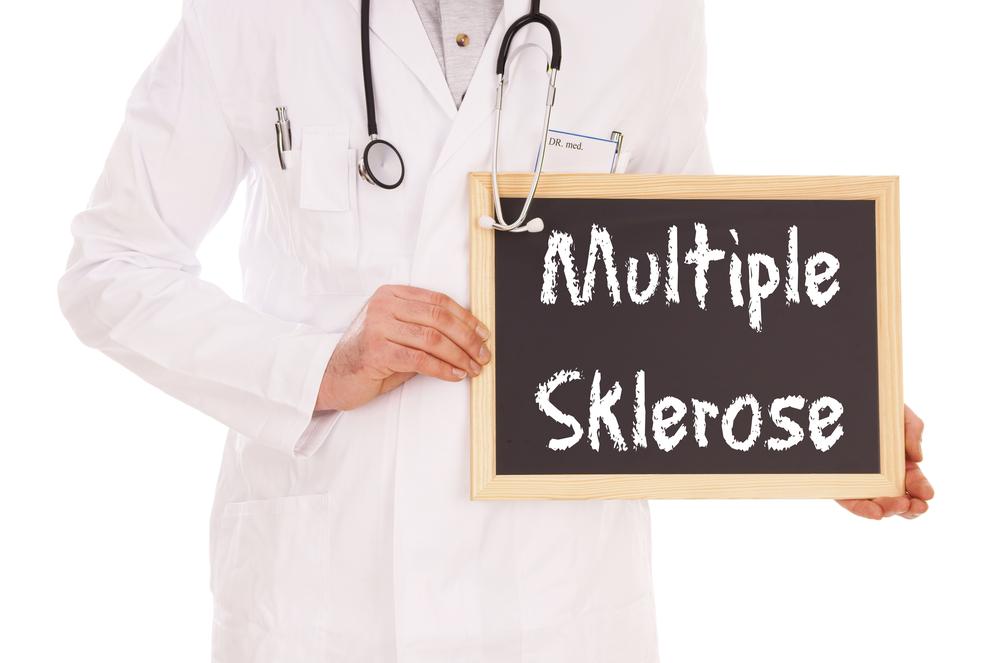Comprehensive Approach to Managing Multiple Sclerosis: Strategies for Better Quality of Life
This comprehensive guide offers detailed strategies for managing multiple sclerosis, covering medical treatments, lifestyle modifications, and emotional support. It emphasizes personalized care approaches to help patients handle symptoms like tremors, spasms, pain, and fatigue, aiming to improve quality of life and maintain independence. The article highlights the importance of multidisciplinary support, including pharmacological options, therapy, and social services, to ensure optimal management of this complex neurological condition.

Advanced Treatment Options and Support Systems for Multiple Sclerosis Patients
Multiple sclerosis (MS) is a complex neurological condition that significantly impacts a person's daily life, often leading to reduced mobility, cognitive challenges, and emotional difficulties. Managing this chronic disease requires a holistic approach that encompasses medical treatment, lifestyle modifications, psychological support, and social assistance. With the right strategies, MS patients can improve their quality of life, maintain independence, and effectively manage symptoms. This comprehensive guide explores various treatment modalities and practical support systems aimed at helping MS patients navigate their journey more comfortably.
Understanding the Common Complications of Multiple Sclerosis
Living with MS involves facing multiple challenges that affect many body systems. These complications vary from person to person but often include persistent motor and sensory disturbances, emotional health issues, and secondary health problems. Recognizing these symptoms is the first step towards effective management. The most frequently encountered MS-related complications include:
Recurrent tremors and depression, impacting daily activities and mental health
Muscle stiffness, spasms, and temperature sensitivity that hinder mobility
Persistent chronic pain and sexual dysfunction that affect personal well-being
Bladder control issues, fatigue, and urinary tract infections that impair comfort and hygiene
Declines in cognitive functions such as memory and concentration
Constipation and fecal incontinence, reducing independence and quality of life
Medical and Lifestyle Strategies for Managing MS Complications
Addressing the wide array of symptoms experienced by MS patients requires tailored strategies. Combining medications with lifestyle changes, physical therapy, and psychological support offers the best chance for symptom control and improved functioning.
Handling Tremors and Motor Symptoms
Tremors are among the most noticeable and challenging symptoms for many MS patients. To mitigate these involuntary movements, a combination of medical devices, pharmacological treatments, and surgical options are utilized. Devices such as weighted utensils and stabilizers can assist in daily tasks, while advanced interventions like deep brain stimulation or thalamic surgery may be considered in severe cases. Pharmacological options include medications like Clonazepam, Mysoline (primidone), Ondansetron, and Propranolol, which can effectively reduce tremor severity. Consulting a neurologist specializing in MS is crucial for optimizing treatment plans.
Managing Muscle Spasms and Stiffness
Muscle spasms and stiffness are common in MS, often leading to pain and mobility restrictions. Consistent physiotherapy and occupational therapy play pivotal roles in managing these symptoms. Stretching exercises, gentle massages, and specific movement routines help improve muscle flexibility and decrease spasm frequency. Spasmolytic drugs such as Diazepam, Baclofen, Dantrolene, and Tizanidine are prescribed to relax muscles and reduce discomfort. Incorporating these into a comprehensive management plan helps maintain mobility and reduces the risk of contractures.
Effective Pain Management
Chronic pain in MS arises from nerve damage, muscle contractions, or secondary issues like joint problems. Targeted medication approaches include anticonvulsants such as Gabapentin, Phenytoin, and Carbamazepine, which are effective in reducing nerve pain. Doses typically range from 100 mg to 1000 mg daily, tailored to individual needs. Additionally, antidepressants may help with neuropathic pain, while anti-arrhythmic drugs can alleviate specific symptoms. Potassium channel blockers like 4-aminopyridines can improve muscle strength and reduce weakness, contributing to better overall function.
Addressing Bladder and Urinary Issues
Bladder dysfunction is a prevalent complication in MS, characterized by urgency, frequency, or retention. Management strategies include behavioral modifications like fluid restriction during nighttime, scheduled voiding, and pelvic floor exercises such as Kegels. Pharmacotherapy options involve medications like oxybutynin and propantheline, which help relax bladder muscles. When necessary, pseudoephedrine may be used to reduce urinary symptoms. Preventive measures for urinary infections include increasing acidic fluid intake—particularly orange and cranberry juices—and, if infections occur, antibiotics or catheterization may be employed to maintain comfort and prevent complications.
Managing Constipation and Fecal Incontinence
Gastrointestinal issues are common in MS, with constipation and fecal incontinence significantly impacting quality of life. Dietary adjustments are vital; increasing fluid intake, especially water, and consuming high-fiber foods such as fruits, vegetables, and whole grains promote regular bowel movements. Stool softeners and laxatives can be used judiciously to relieve constipation, while reducing fiber intake or avoiding gas-producing foods is recommended for managing fecal incontinence. Regular physical activity and maintaining a consistent bowel routine also support digestive health.
Addressing Emotional and Psychological Challenges
MS often leads to depression, anxiety, and feelings of hopelessness, which can worsen physical symptoms and hinder treatment adherence. Psychological counseling, psychiatric interventions, participation in support groups, and therapy are essential components of holistic care. Medications like Fluoxetine, Sertraline, and Amitriptyline are prescribed to stabilize mood and reduce depressive symptoms. Building a strong support network and maintaining social connections can foster resilience, offering emotional stability and improving overall well-being.
Managing Heat Sensitivity and Environmental Adjustments
Heat sensitivity is a common problem among MS patients, exacerbating symptoms like fatigue and weakness. To combat this, patients should avoid exposure to high temperatures, use cooling techniques such as ice packs, fans, and cooling garments, and keep living environments comfortably cool using air conditioning. Wearing lightweight clothing and scheduling outdoor activities during cooler times of the day are practical measures. These adjustments help minimize heat-induced symptom flare-ups and preserve daily functioning.
Addressing Sexual Dysfunction
MS-related sexual health issues can cause emotional distress and relationship strain. Solutions include the use of lubricants and sexual aids to enhance intimacy. Medications like Sildenafil (Viagra) may improve blood flow and sexual response. Open communication with partners and consulting healthcare professionals or sex therapists can guide effective management strategies, preserving intimacy and emotional connection.
Combating Fatigue and Cognitive Decline
Fatigue is one of the most debilitating symptoms in MS, often interfering with daily activities. Employing assistance with routine tasks, incorporating energy conservation techniques, and engaging in regular rest are vital. Stimulant medications such as methylphenidate can help improve alertness and reduce exhaustion. Cognitive issues including memory lapses and decreased concentration can be addressed through medications like Donepezil, which enhance neurotransmitter activity. Cognitive training exercises and mental health support further aid in maintaining mental acuity.
Supporting Independence through Social and Occupational Therapy
While MS imposes physical and psychological challenges, social and occupational therapy provide essential support to retain independence. These therapies include adaptive tools, assistive devices, and training for daily activities. Professional services aim to maximize remaining motor functions, improve coordination, and foster positive mental outlooks. Community resources, vocational rehabilitation, and support groups play a crucial role in helping patients stay engaged with life and maintain their roles within their families and society.
In conclusion, managing multiple sclerosis requires a multidisciplinary approach that combines medical treatments, lifestyle adjustments, psychological support, and social interventions. By implementing personalized strategies and leveraging professional services, MS patients can mitigate symptoms, enhance quality of life, and maintain independence over the long term.





